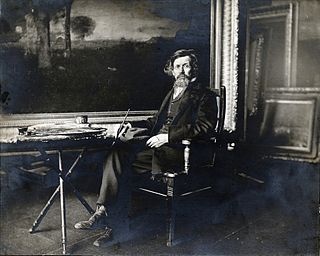A Quote by James Madison
There is in every breast a sensibility to marks of honor, of favor, of esteem, and of confidence, which, apart from all considerations of interest, is some pledge for grateful and benevolent returns. Ingratitude is a common topic of declamation against human nature; and it must be confessed, that instances of it are but too infrequent and flagrant both in public and in private life. But the universal and extreme indignation which it inspires, is itself a proof of the energy and prevalence of the contrary sentiment.
Quote Topics
Against
Apart
Benevolent
Both
Common
Confidence
Contrary
Declamation
Energy
Esteem
Every
Extreme
Favor
Grateful
Honor
Human
Human Nature
Indignation
Ingratitude
Inspires
Interest
Itself
Life
Marks
Must
Nature
Pledge
Private
Private Life
Proof
Public
Returns
Sensibility
Sentiment
Some
Too
Topic
Universal
Which
Related Quotes
To attach full confidence to an institution of this nature, it appears to be an essential ingredient in its structure, that it shall be under private and not a public direction-under the guidance of individual interest, not of public policy; which, would be . . . liable to being too much influenced by public necessity.
A small knowledge of human nature will convince us, that, with far the greatest part of mankind, interest is the governing principle... Few men are capable of making a continual sacrifice of all views of private interest, or advantage, to the common good. It is vain to exclaim against the depravity of human nature on this account; the fact is so, the experience of every age and nation has proved it and we must in a great measure, change the constitution of man, before we can make it otherwise. No institution, not built on the presumptive truth of these maxims can succeed.
I don't know if the term 'liberation theology,' which can be interpreted in a very positive sense, will help us much. What's important is the common rationality to which the church offers a fundamental contribution, and which must always help in the education of conscience, both for public and for private life.
The highest art is where has been most perfectly breathed the sentiment of humanity...Some persons suppose that landscape has no power of communicating human sentiment. But this is a great mistake. The civilized landscape peculiarly can: and therefore I love it more and think it more worthy of reproduction than that which is savage and untamed. It is more significant. Every act of man, every thing of labor, effort, suffering, want, anxiety, necessity, love, marks itself wherever it has been.
That which is common to the greatest number has the least care bestowed upon it. Every one thinks chiefly of his own, hardly at all of the common interest; and only when he is himself concerned as an individual. For besides other considerations, everybody is more inclined to neglect the duty which he expects another to fulfill.
There is nothing in the nature of a miracle that should render it incredible:;: its credibility depends upon the nature of the evidence by which it is supported. An event of extreme probability will not necessarily command our belief unless upon a sufficiency of proof; and so an event which we may regard as highly improbable may command our belief if it is sustained by sufficient evidence. So that the credibility or incredibility of an event does not rest upon the nature of the event itself, but depends upon the nature and sufficiency of the proof which sustains it.
The real security of Christianity is to be found in its benevolent morality, in its exquisite adaptation to the human heart, in the facility with which its scheme accommodates itself to the capacity of every human intellect, in the consolation which it bears to the house of mourning, in the light with which it brightens the great mystery of the grave.
[T]he liberty, the unalienable, indefeasible rights of men, the honor and dignity of human nature, the grandeur and glory of the public, and the universal happiness of individuals, were never so skillfully and successfully consulted as in that most excellent monument of human art, the common law of England.
Again, if the world is destroyed, it must needs either be destroyed according to nature or against nature. Against nature is impossible, for that which is against nature is not stronger than nature. If according to nature, there must be another nature which changes the nature of the world: which does not appear.
The unbought grace of life, the cheap defence of nations, the nurse of manly sentiment and heroic enterprise isgone! it isgone, that sensibility of principle, that chastity of honour, which felt a stain like a wound, which ennobled whatever it touched, and under which vice itself lost half its evil, by losing all its grossness.
Whoso turns his attention to the bitter strifes of these days and seeks a reason for the troubles that vex public and private life must come to the conclusion that a fruitful cause of the evils which now afflict, as well as of those which threaten us, lies in this: that false conclusions concerning divine and human things, which originated in the schools of philosophy, have crept into all the orders of the state, and have been accepted by the common consent of the masses.
Meekness is an unchanging state of mind, which both in honor and dishonor remains the same. Meekness consists in praying sincerely and undisturbedly in the face of afflictions from one's neighbor. Meekness is a cliff rising from the sea of irritability, against which all the that waves that strive against it break, but which is itself never broken.

































